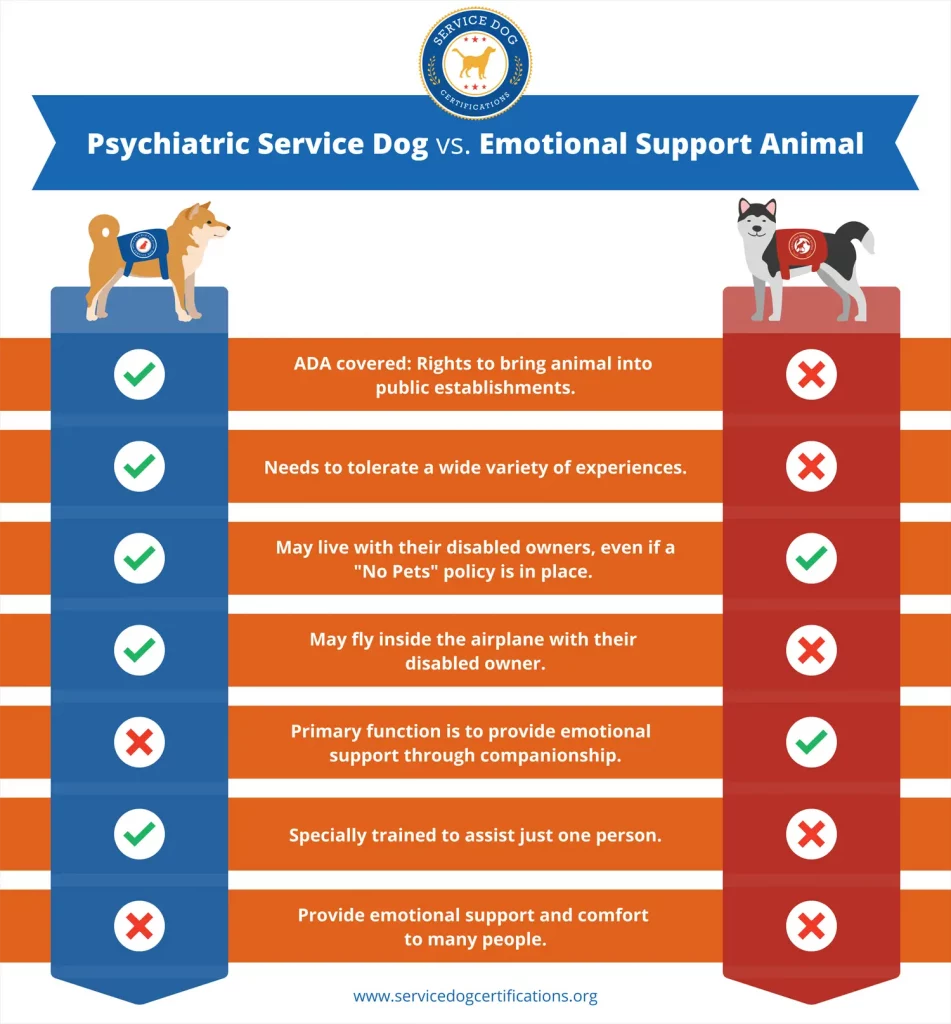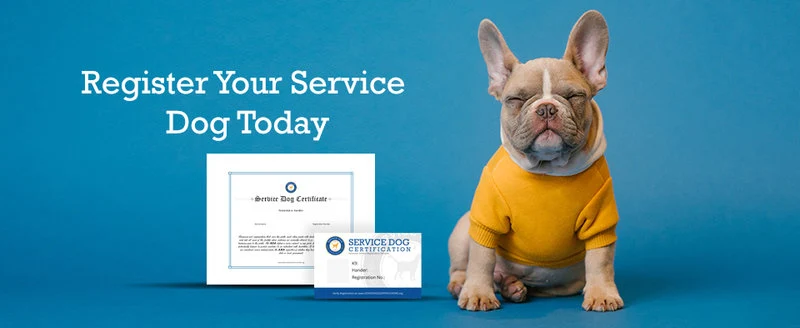Virginia Service Dog Requirements
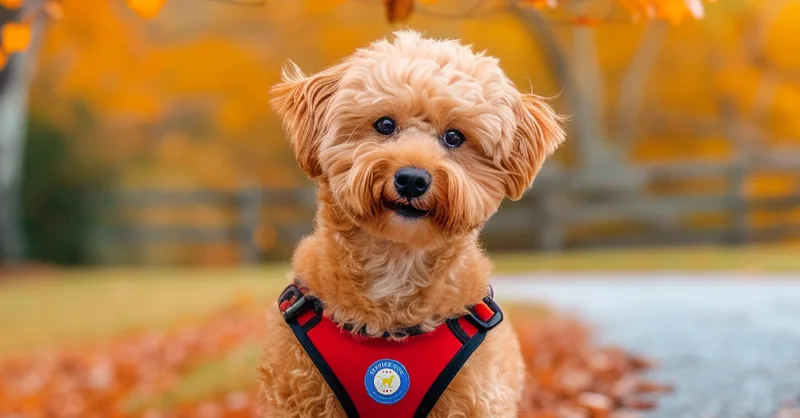
Residents of Virginia who need a service dog are legally protected under federal law and state-specific statutes. The Americans with Disabilities Act (ADA) and Virginia Code §51.5-44 safeguard the rights of service dog owners in the Old Dominion.
In Virginia, service dogs must be granted access to public areas, regardless of general prohibitions against pets. This article provides an in-depth look at service dog requirements in Virginia.
Handler Health Requirements
To qualify for a service dog in Virginia, an individual must have a recognized physical or mental disability. The ADA defines a “disability” as a physical or mental impairment that substantially limits one or more major life activities, such as working, socializing, or attending school.
Physical disabilities can range from visual and hearing impairments to mobility issues. Mental health disabilities include severe conditions like depression, anxiety disorders, PTSD, autism, and learning disabilities. Service dogs catering to mental health needs are often referred to as psychiatric service dogs.
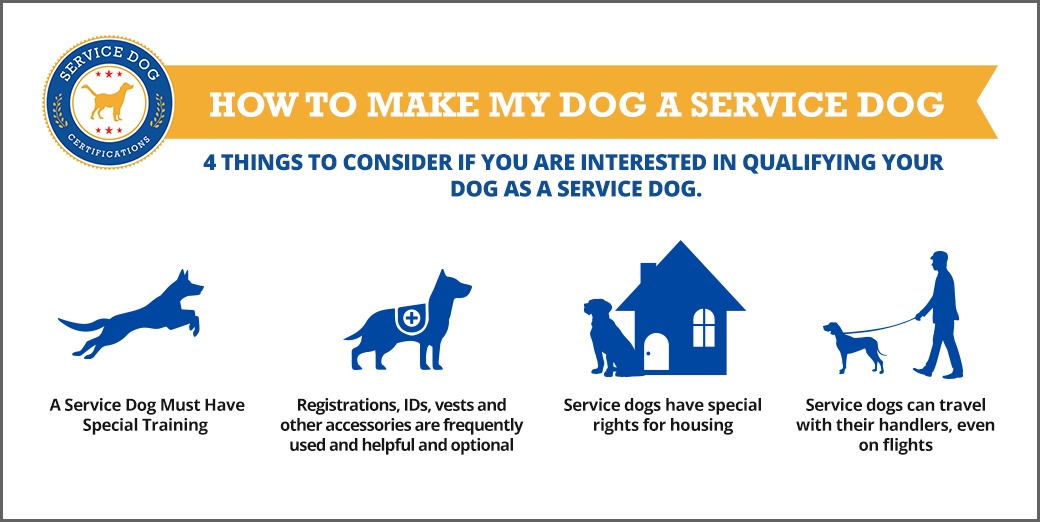
Virginia Service Dog Training Requirements
Having a disability isn’t enough by itself to qualify for a service dog. The service dog must be trained to perform tasks or provide assistance directly related to the individual’s disability.
Service dogs in Virginia are trained for a multitude of tasks. For physical disabilities, this might include aiding in mobility, guiding visually impaired individuals, or detecting seizures. For psychiatric disabilities, tasks can range from retrieving medication, providing comfort during anxiety attacks, to aiding in navigation in crowded places.
Virginia residents can train their service dogs independently or seek professional assistance. One unique aspect of Virginia’s law is that service dogs in training that are at least 6 months of age also have public access rights, as long as the dog is:
- in harness, provided the handler is an experienced trainer of guide dogs or is conducting continuing training of a guide dog;
- on a blaze orange leash, provided the handler is an experienced trainer of hearing dogs or is conducting continuing training of a hearing dog;
- in a harness, backpack, or vest identifying the dog as a trained service dog, provided the handler is an experienced trainer of service dogs or is conducting continuing training of a service dog;
- wearing a jacket identifying the recognized guide, hearing, or service dog organization, provided the handler is an experienced trainer of the organization identified on the jacket; or
- the handler is part of a three-unit service dog team and is conducting continuing training of a service dog.
Identification Requirements for Service Dogs in Virginia
Service dog handlers in Virginia often use items like ID cards, tags, vests, and certificates to identify their dogs as service animals in public settings.
While these items are not mandatory in Virginia for proving a dog is a service animal, they can be helpful in avoiding misunderstandings and ensuring smooth public access. Service dog handlers find that staff at venues typically expect to see service dog signifiers like vests and tags.
To verify a service dog in public spaces, Virginia law allows for two questions to be asked when a disability isn’t readily apparent:
- Is the dog a service animal required due to a disability?
- What work or task is the dog trained to perform?
Service Dog Registration in Virginia
Registering a service dog in Virginia is voluntary. There is no legal requirement for service-dog-specific registration, although general dog registration may be mandated locally.
Many handlers choose to register their service dogs to have their dog’s information linked to an easily accessible database and ID card. While service dog ID cards are handy, keep in mind that service dog handlers can’t be denied access because they don’t have proper documentation.
Psychiatric Service Dog Requirements
In Virginia, psychiatric service dogs are afforded the same legal protections as service dogs for physical disabilities. They play an essential role in helping their handlers manage mental health conditions.
Psychiatric service dogs in Virginia are trained for various tasks including, but not limited to:
- Deep pressure therapy
- Medication reminders
- Security in open spaces
- Tactile stimulation
- Alerting to potential threats
- Interrupting harmful behaviors
Wonder if you qualify for a psychiatric service dog in Virginia?
Get an assessment from a licensed medical health professional. If you qualify, they can issue a PSD letter so that you can confidently train and own a psychiatric service dog.
Service Dog Access Rights in Virginia
Service dogs in Virginia are entitled to accompany their handlers in public spaces that are typically off-limits to pets. This includes places like:
- Restaurants
- Stores
- Hospitals
- Educational institutions
- Hotels
Service dog handlers must be accommodated free of charge. However, in Virginia, service dog handlers are liable if the dog causes damage to the property.
Additionally, service dog handlers are granted housing rights. Service dog owners can live with their dogs, even in pet-restricted housing. Residential buildings cannot charge pet fees or deposits for accommodating a service dog.
Flying to and from Virginia with a service dog requires the handler to complete the Department of Transportation’s Service Animal Air Transportation Form. Airlines are required to allow service dogs in the cabin free of charge as long as certain conditions are met. For a complete guide on flying with a service dog, click here.
Control of Service Dogs
It’s crucial that service dogs in Virginia are always under the control of their handler. A service dog behaving disruptively or posing a threat to public safety can be lawfully excluded. Service dogs are not only highly trained to perform their disability assistance task but should also be capable of passing a service dog public access test.
Emotional Support Animals in Virginia
Virginia distinguishes between service dogs and emotional support animals (ESAs). ESAs aid mental health conditions without requiring specialized training.
ESAs have more limited rights compared to service dogs. They can reside with their owners in no-pet housing but lack broader public access rights.
Unlike service dogs, which are limited to dogs, ESAs can be various animals. Qualifying for an ESA in Virginia requires a signed ESA letter from a licensed healthcare professional.
Service Dog Legal Developments in Virginia
If you’re looking to purchase a service dog, make sure to find a reputable organization with a proven track record. In a lawsuit filed by the Attorney General, a Virginia service dog company could pay about $3 million in restitution and other penalties to settle a lawsuit that accused them of deceiving customers and providing ill-trained animals.
The dogs sold were presented as being able to assist people with diabetes, autism, and other disorders. However, customers often received poorly trained pups with behavioral issues and inadequate levels of training.
If you’re considering purchasing a fully trained service dog, seek references and thoroughly interview the provider. The same is true if you desire a professional trainer to train your dog to become a service dog.
Virginia is for Service Dog Lovers
In summary, Virginia’s stance on service dog requirements demonstrates a commitment to inclusivity and accessibility for individuals with disabilities. The state’s laws ensure a supportive environment for service dog handlers and recognize the indispensable role these animals play in the lives of their handlers.
Whether aiding with physical limitations or providing support for psychiatric conditions, service dogs in Virginia are not just pets but vital partners in navigating the challenges of daily life.
About the Author: The writing team at Service Dog Certifications is made up of folks who really know their stuff when it comes to disability laws and assistance animals. Many of our writers and editors have service dogs themselves and share insights from their own experiences. All of us have a passion for disability rights and animals.
Latest Posts
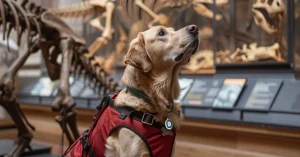
Can you bring a service dog to a museum?
Yes, you can bring your service dog to the museum! All the major U.S. museums welcome guests with service animals in accordance with the Americans with Disabilities Act (ADA). There are some areas, however, that might be off-limits. Here’s what you should know if you plan to spend a day at the museum with your […]

Read More
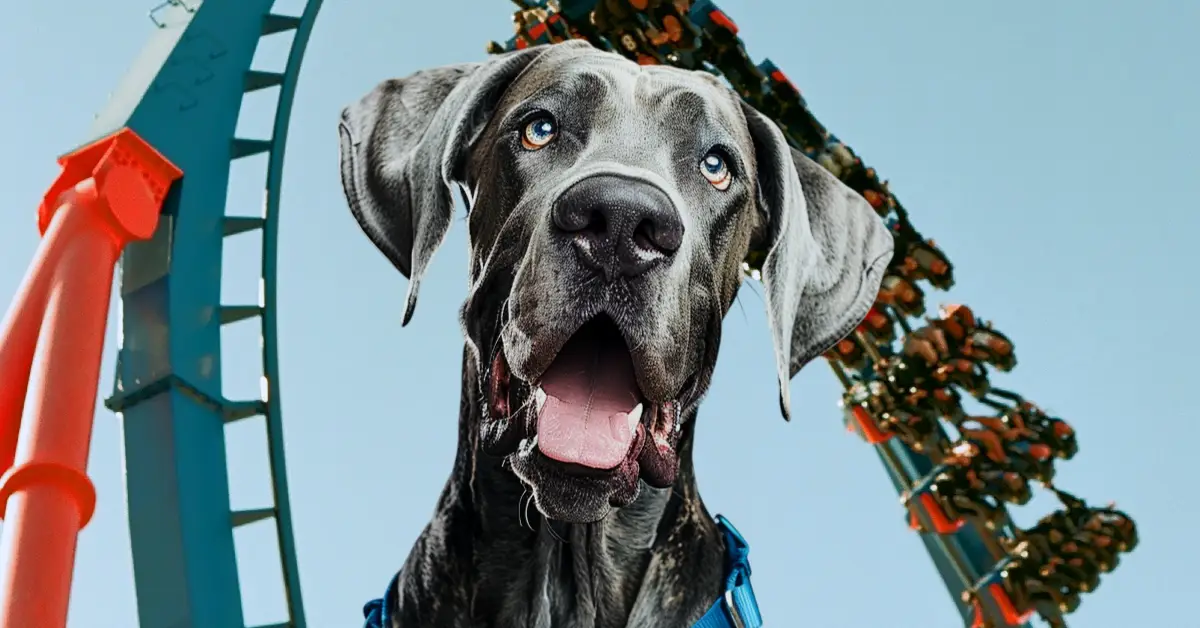
How to Bring a Service Dog to Six Flags Magic Mountain
Service dogs are welcome at Six Flags Magic Mountain so long as they are, according to Six Flags, “trained to do work or perform tasks for people with disabilities.” Of course, your dog must be housebroken and remain on a leash or harness and under your control while at the park — and the park […]

Read More
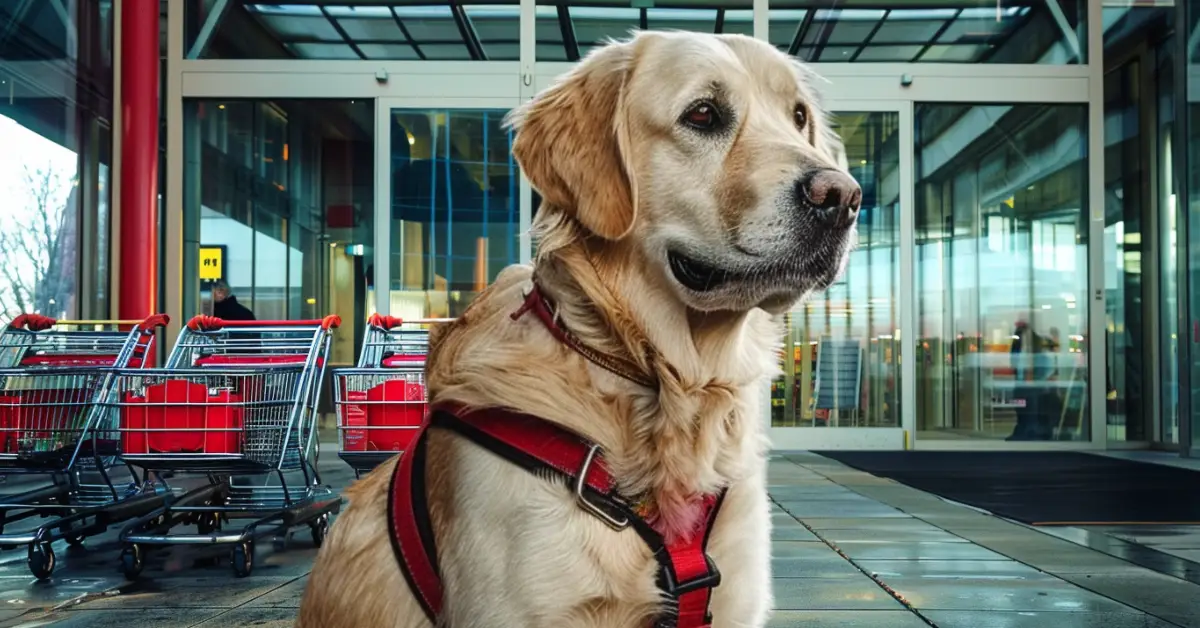
When Stores Can Refuse Your Service Dog
According to the Americans with Disabilities Act (ADA), service dogs should be allowed into any store most of the time. A store owner can legally exclude a service dog if they are actively growling, snapping at, or frightening customers, or if the dog is obviously out of the control of its owner. Ordinary behaviors — […]

Read More


